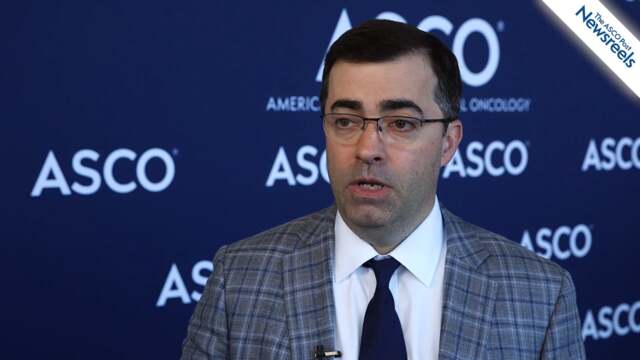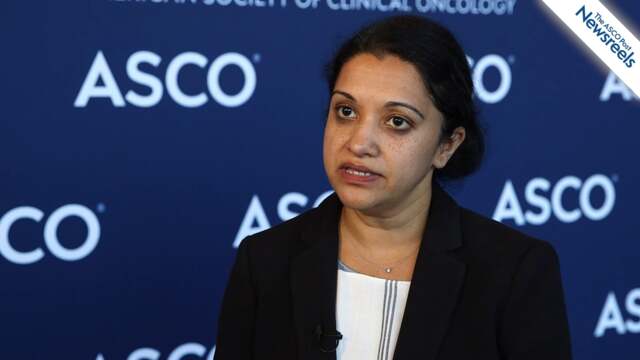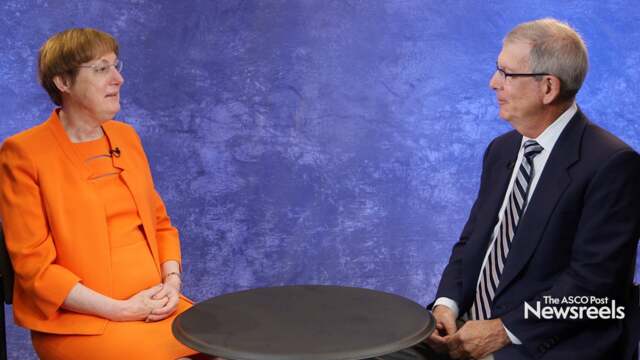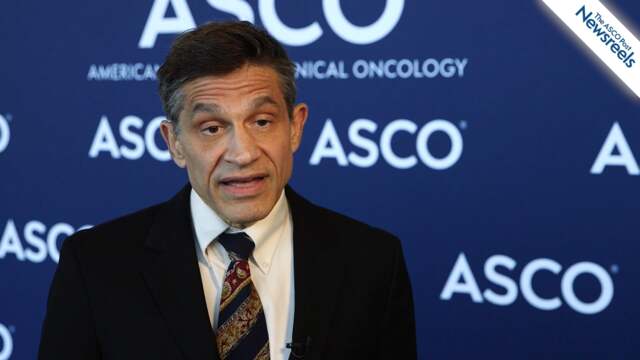Sibylle Loibl, MD, PhD, on Triple-Negative Breast Cancer: Results From the GeparNuevo Trial
2018 ASCO Annual Meeting
Sibylle Loibl, MD, PhD, of the German Breast Group, discusses phase II study findings on the addition of durvalumab to a taxane-anthracycline–containing chemotherapy in triple-negative breast cancer (Abstract 104).
David F. McDermott, MD, of Beth Israel Deaconess Medical Center, discusses study findings on pembrolizumab monotherapy as first-line therapy in advanced clear cell renal cell carcinoma (Abstract 4500).
Supriya G. Mohile, MD, of the University of Rochester Medical Center, discusses study findings on ways to improve communication with older cancer patients using geriatric assessment (Abstract LBA10003).
Allen S. Lichter, MD, ASCO’s former Chief Executive Officer, talks with Nancy E. Davidson, MD, of Fred Hutchinson Cancer Research Center, the 2018 recipient of the Visionary Leader Award, named for Dr. Lichter.
Julie M. Vose, MD, MBA, of the University of Nebraska Medical Center, and Nathan Hale Fowler, MD, of The University of Texas MD Anderson Cancer Center, discuss phase III study findings on lenalidomide plus rituximab vs chemotherapy plus rituximab, followed by rituximab maintenance, in patients with previously untreated follicular lymphoma (Abstract 7500).
Robert J. Kreitman, MD, of the National Cancer Institute, discusses findings on moxetumomab pasudotox in heavily pretreated patients with relapsed or refractory hairy cell leukemia (Abstract 7004).





